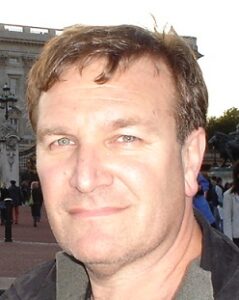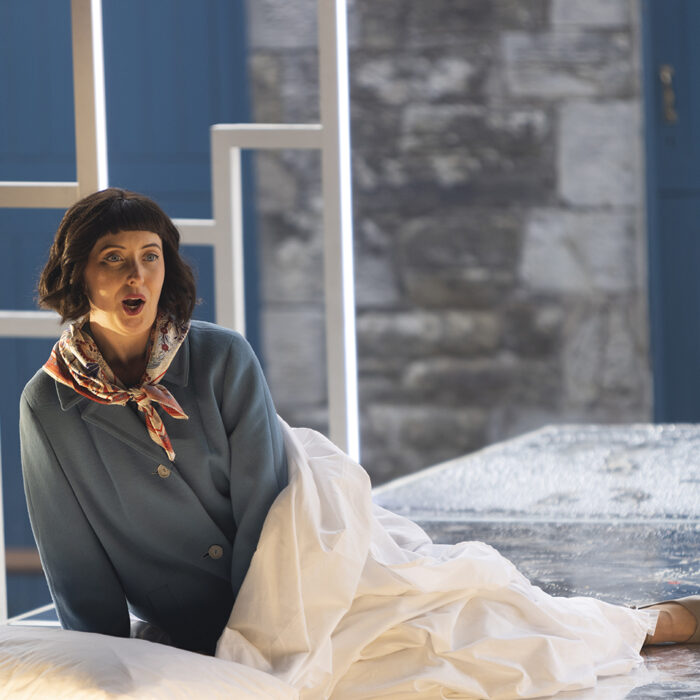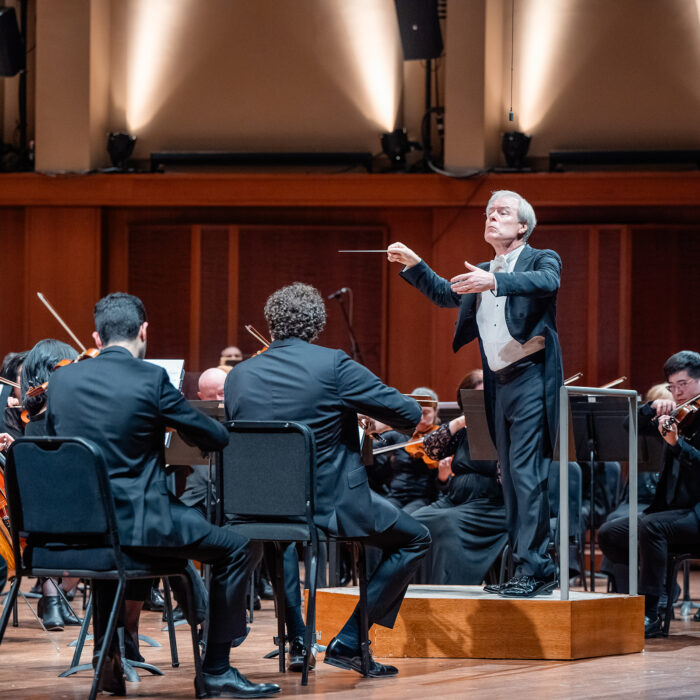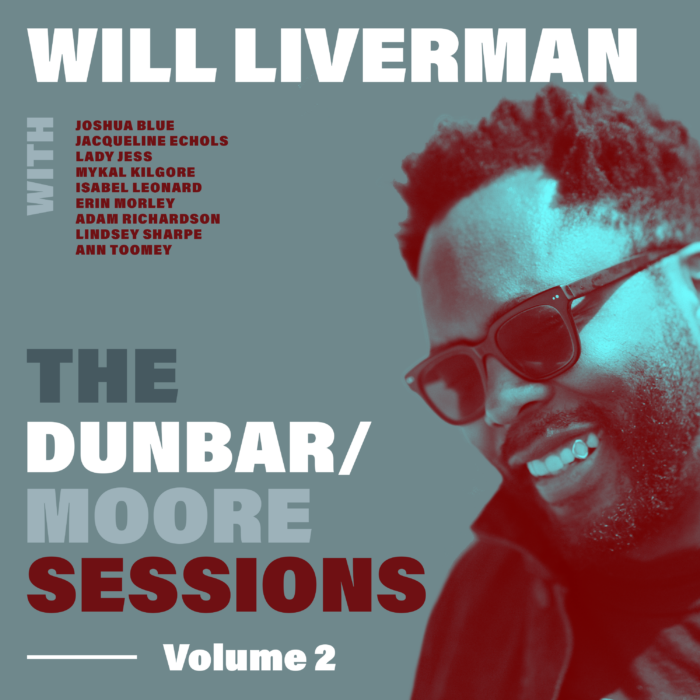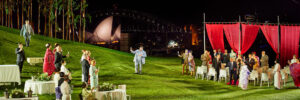
Opera Australia 2023 Review: Madama Butterfly
A near-epic production showcases what an Australian company can do within the art form
By Gordon WilliamsCredit: Keith Saunders
Opera Australia’s annual Handa Opera on the Harbor, named after Opera Australia’s Patron-in-Chief, Japanese businessman Haruhisa Handa, is undoubtedly one of Sydney’s most anticipated yearly social events. At the premiere of Puccini’s “Madama Butterfly,” helmed by Spanish director Àlex Ollé on March 24th, a black-tie audience including three former Australian prime ministers indicated that the show had an A-list audience. Still, there’s also something uniquely, hedonistically, democratically ‘Sydney’ about enjoying a balmy autumn evening watching a popular opera in informal surroundings (dress casually, if you like), while at the same time, daylight recedes, the fruit bats fly to their trees, and lights come out on the distant Opera House on Bennelong Point, Farm Cove’s western arm.
But non-traditional settings may also raise challenging questions about how such masterworks are presented. Is the outdoor setting conducive to the ideal sound? Is it the best way to enjoy an art form that grew up celebrating the expressiveness of the unamplified voice? This is opera amplified, and thereby perhaps inevitably lacking some of acoustic sound’s timbral richness, however much that aspect may be forgiven in the excitement of the performance.
‘Butterfly’: Come for the Music, Stay for the Drama
One’s assessment of the artistic quality of the performance might hinge on the degree to which an attendee regards opera as music or drama. This production by Ollé (revived by Susana Gómez) with designs by Alfons Flores (sets), Lluc Castells (costumes), Alexander Koppelmann (lighting), and Jake Luther (sound) provided strong evidence that “Butterfly” works remarkably well as drama, even if it’s still the music that audiences come for.
There were, of course, notable musical moments. The chorus that entered in Act one, for example, portrays members of Butterfly’s Nagasaki community arriving for what at this stage is expected to be the beginning of a fairy-tale marriage to the American naval lieutenant, Pinkerton. It was ethereally innocent as ever.
An audience member could relish the beautiful complement of female voices when soprano Karah Son as Butterfly and mezzo-soprano Sian Sharp as her maid, Suzuki, adorned Butterfly’s house with flowers, awaiting Pinkerton’s return from America.
In the chorus’ entry, Ollé’s action complemented the music just as effectively in its evocation of innocence as the ensemble almost somnolently threaded their way downhill through a grove of bamboo surmounting set designer Alfons Flores’ massive hill (It’s an entire hill floating on the pontoon stage that sits in Farms Cove’s waters). In Ollé’s conception, this paradise will be lost in Act two as a US-based property development company, whose principal is the now presumably decommissioned and Stateside naval lieutenant, Pinkerton, builds on the once untouched ‘Eden.’
In terms of characterizations, Korean soprano Karah Son’s Butterfly was a tour-de-force whose journey we raptly followed. “Un bel dì,” she sang as she imagined Pinkerton’s boat returning to Nagasaki one fine day. We could see in detail what the character visualizes in her imagination, identifying with Butterfly’s expectation of triumphal reunion as Son ascended to a ringing forte, stripping down to a Star-spangled T-shirt and shorts on “io con sicura fede l’aspetto.” On the other hand, the power of her “Yamadori…Ancor le pene dell’amor non v’han deluso?” served only to underline the irony of Butterfly’s misplaced confidence in Pinkerton as she mocked Yamadori, the Japanese suitor (Alexander Hargreaves) who is prepared to marry her after it is apparent to everyone else that she has been deserted. It was a sign of the dramatic integrity of this production, though, that “Un bel dì”—so often a stand-alone number—came quite naturally out of the dramatic texture. One might easily have forgotten that the ‘big highlight’ was imminent.
In supporting roles, Michael Honeyman was a wonderfully sympathetic consul, Sharpless, the only character with perhaps the moral right to upbraid Pinkerton for his heedless course toward tragedy. And there were admirable details in Sian Sharp’s Suzuki – from forced humoring of Butterfly’s delusion to grave awareness of the situation to telling it straight: “No one’s ever heard of a foreign husband who came back.”
Puccini’s Beautiful Music Doesn’t Mask Pinkerton’s Loathsomeness
One of the oddities of “Madama Butterfly,” occasionally remarked on, is how the story seems at odds with the beauty of Puccini’s music. English speakers can be astonished when they digest the subtitles for the first time and realize that the lead tenor, the American lieutenant Pinkerton, is quite a loathsome character, an apt representative of the insensitively colonizing power, even if having so many—if not the devil’s share—of the best tunes. Perhaps Italian speakers, understanding the opera in its original language, knew all along that a key attraction for the cad Pinkerton in marrying the 15-year-old Japanese Butterfly is the marriage contract, easily dissolvable like so much else that intrigues Pinkerton in this country newly opened to the West. And yes, they were subtitles; there was no proscenium.
Mexican-American tenor Diego Torres’ Pinkerton was the tenor who rewarded the audience with full-blooded and seductive bravado. But that full-bloodedness was also in the service of portraying the arrogant eagerness of his character. In Torres’ hands, Pinkerton’s attempts to sing the ‘Star-spangled Banner’ in Act one came across as so many attempts to steer the uncomfortable conversation with the consul about Butterfly’s vulnerability back to celebrations of patriotic pride. So much motivational detail came across.
Floating Hills, Bamboo, and an Orchestra Beneath Pontoons
The orchestra in Opera on the Harbor plays in a studio under the floating pontoon stage, connected to the stage with monitors and earpieces. It’s a logistical achievement as much as anything, yet conductor Brian Castles-Onion made sure the opera flowed and provided insightful details. The separate articulation of notes after the Act three trio puts a very fine point on the tragedy of the moment when Sharpless and Pinkerton both grasp the full gravity of Butterfly’s grief and shame already sensed by Butterfly’s maid, Suzuki. The orchestra provided character in a situation where the music might just as easily have remained underscore.
Nevertheless, this production told the story through the whole stage picture rather than just vocally.
Some of the bare statistics dazzle—a stage two-and-a-half times that of any Australian indoor stage; 1,300 squares of ‘artfully trimmed artificial grass overlook[ed] by a bamboo grove, (and yes… natural bamboo); and a house constructed during interval (the construction crew got a bow at the end).
But this size is where this production’s eye-opening achievement could be found. As characters had to relate across vast spaces, we could follow their contrasting motivations with staggering clarity. Seeing the characters so distinctly, their distinguishing differences were magnified. We could see and hear how much was going on in the Yamadori-Goro-Butterfly trio, where Butterfly way too confidently rejects Goro’s suggestion of Prince Yamadori as a new suitor.
Crosscurrents were at the fore, yet the staging may also be responsible for revealing how lyrical the parts of Sharpless and Goro could be. However, this also came down to the performers (Australian-Italian tenor Virgilio Marino sang Goro).
Ollé sought an extra political dimension in this story. That partly explains the procession of refugees (their homes compulsorily acquired by the developer?) crossing the stage during the Humming Chorus, adding another layer of meaning to a passage that usually solely expresses Butterfly and Suzuki’s night-long vigil for Pinkerton.
But there was an added poignance to this theme of dislocation in the Australian setting. Australian public events—performances, institutional openings, et cetera—are these days prefaced by what are called Welcomes to Country, words of invocation to the original habitants of Australia’s cities and towns. In this case, the Welcome was provided by Donna Ingram of the Tribal Warrior Corporation, a Wiradjuri woman who hails from a more western part of New South Wales but who was born in Sydney “on Gadigal land.” Welcomes to Country have become de rigeur here to the extent that there is an occasional fear they may become lip service. But in the context of “Madama Butterfly,” a story which, in director Ollé’s words, depicts the Westerner Pinkerton as “the tsunami that threatens the future,” the Welcome to Country became part of the work’s imparting of meaning.
It’s good to know that this production has been performed in Rome, the only Opera on the Harbor production to have traveled elsewhere. Not just dramatic but almost epic, it is a production that well represents what an Australian company can do in this, our most wide-reaching theatrical form.
